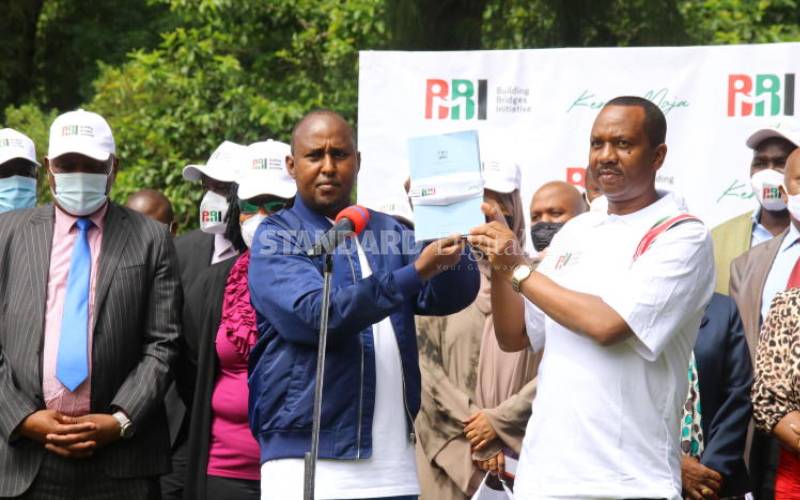×
The Standard e-Paper
Home To Bold Columnists

A conflation of political considerations, personal ambitions, strategic interests and pursuit of national good is playing in the background of the fervent push for constitutional changes packed in the handshake deal.
Through their handshake which triggered the Building Bridges Initiative (BBI), President Uhuru Kenyatta and ODM leader Raila Odinga have given a lifeline to sunken careers, revived fledgling ones and offered fresh prospects for more people to sit at the top.